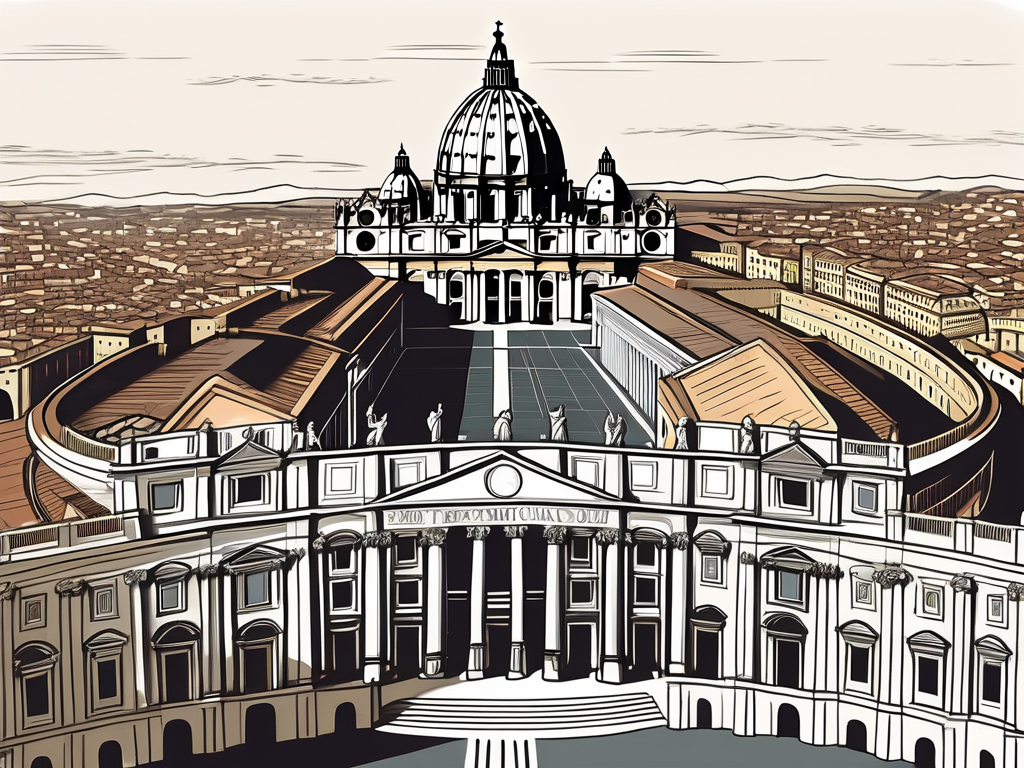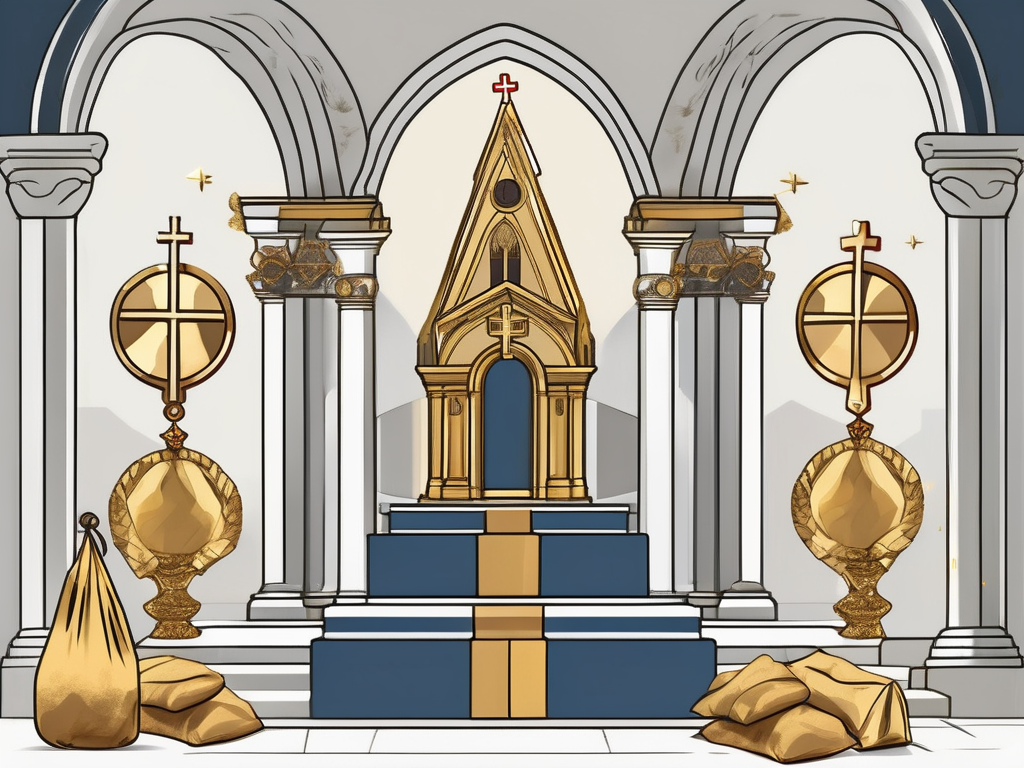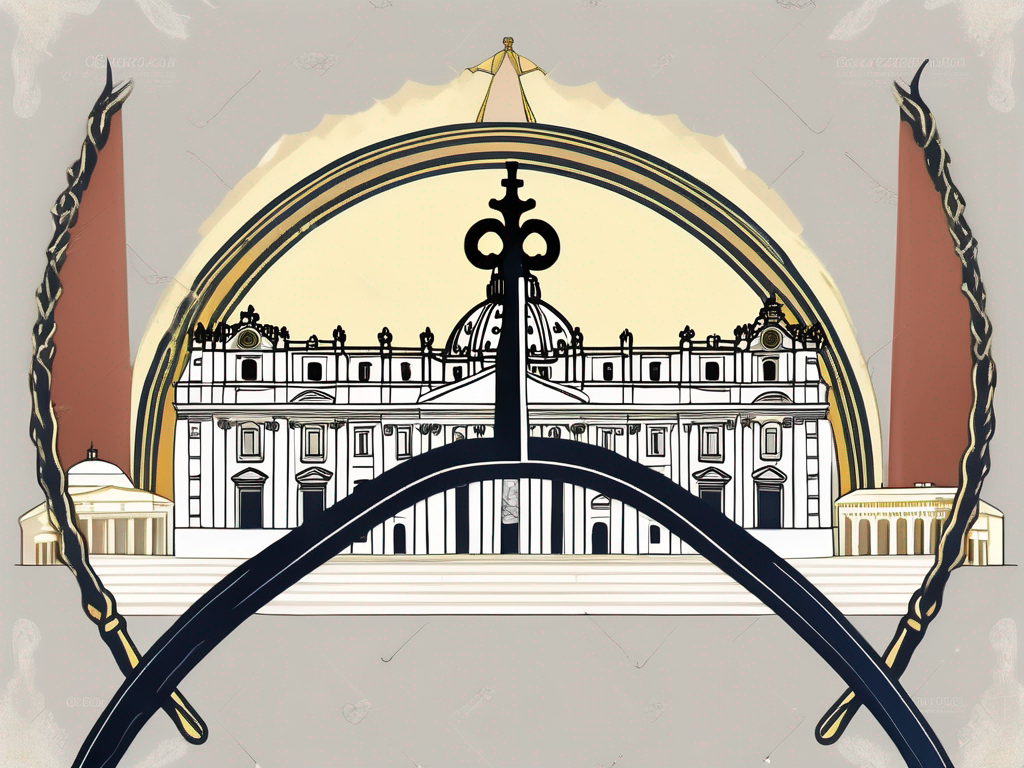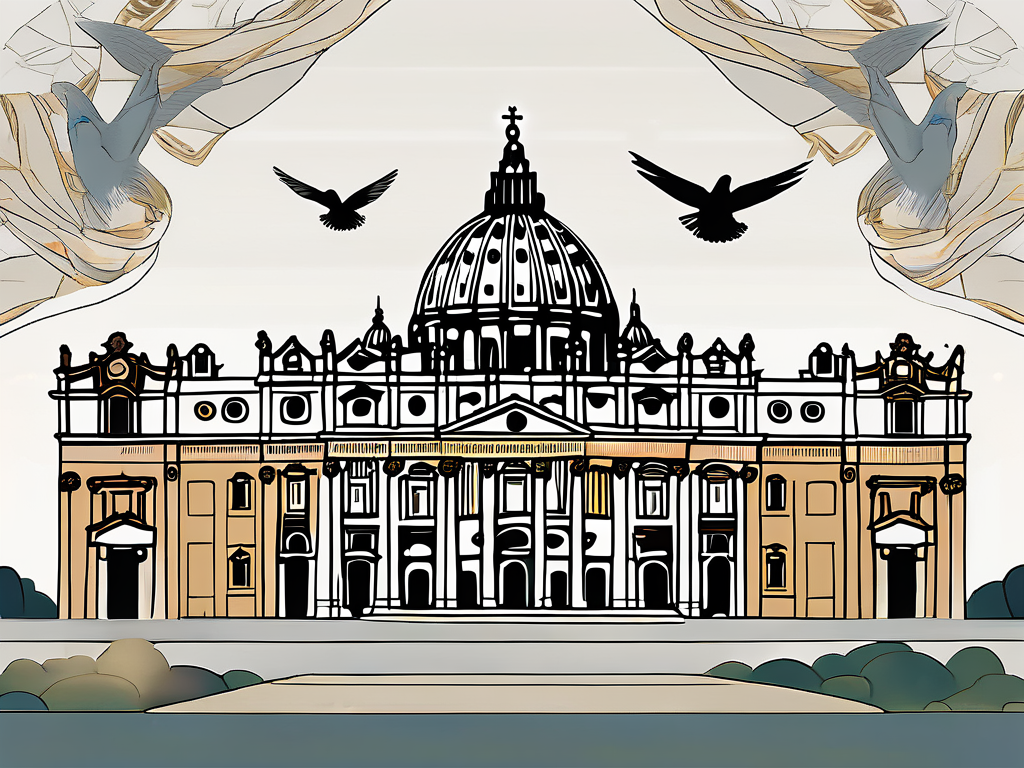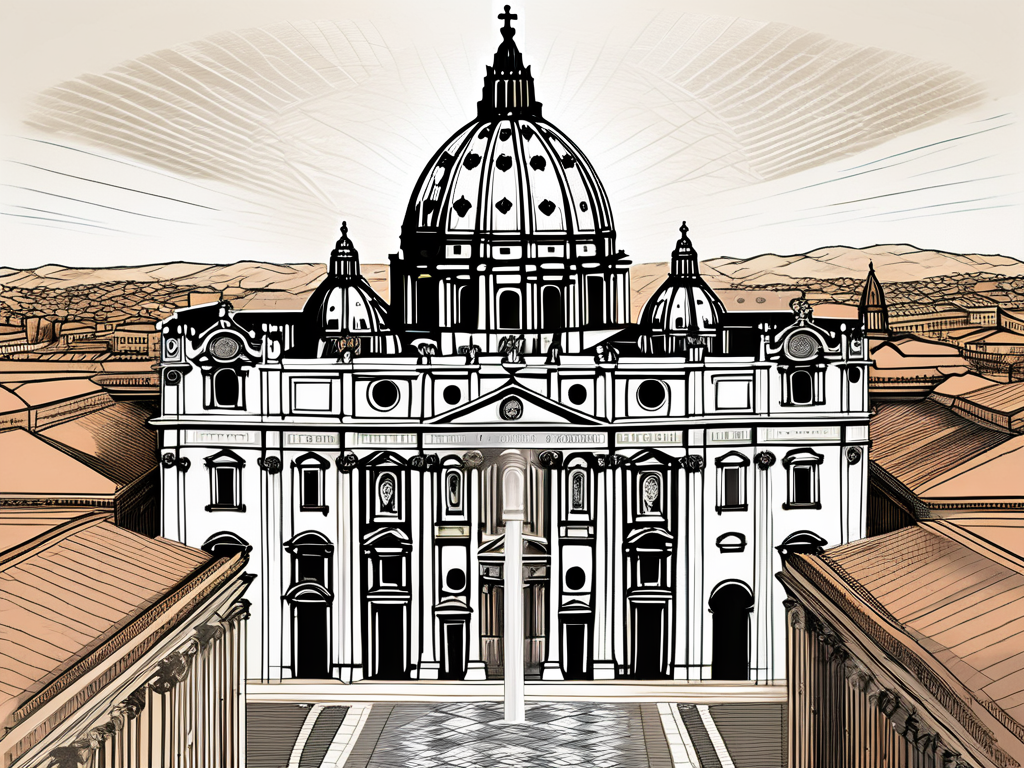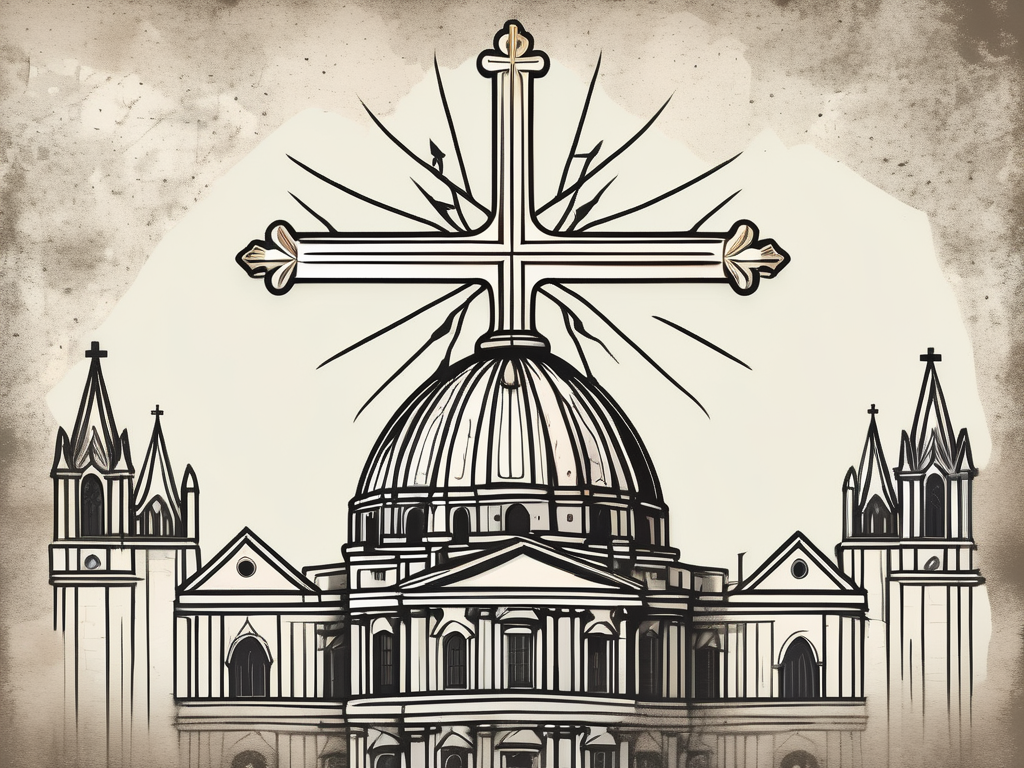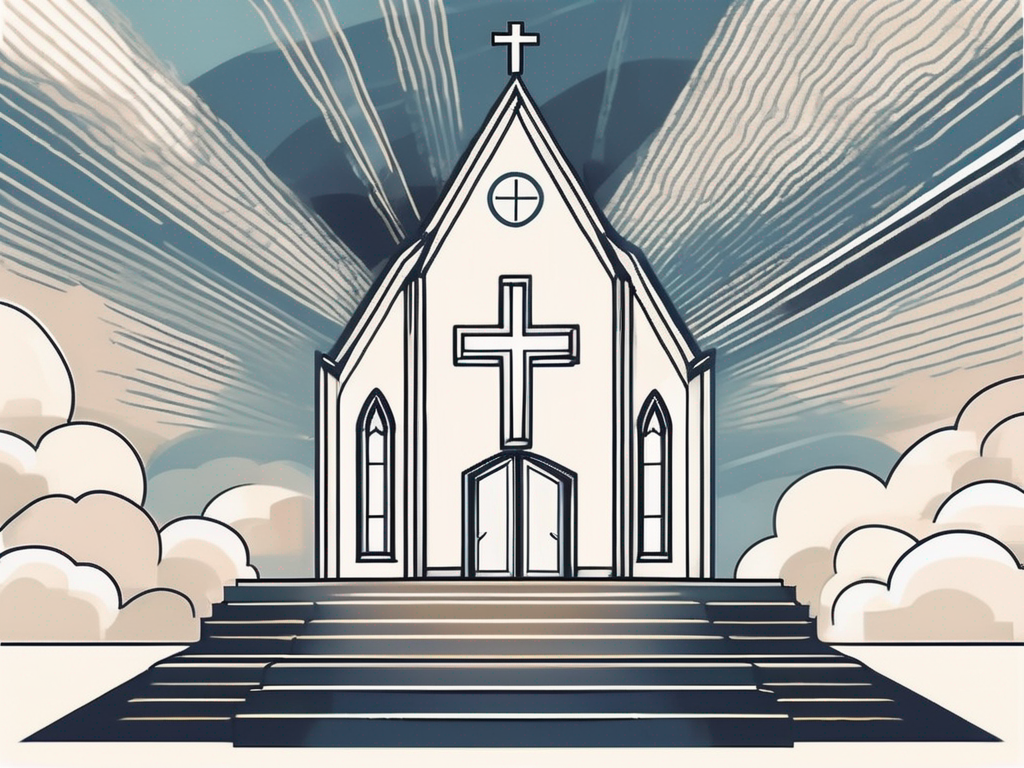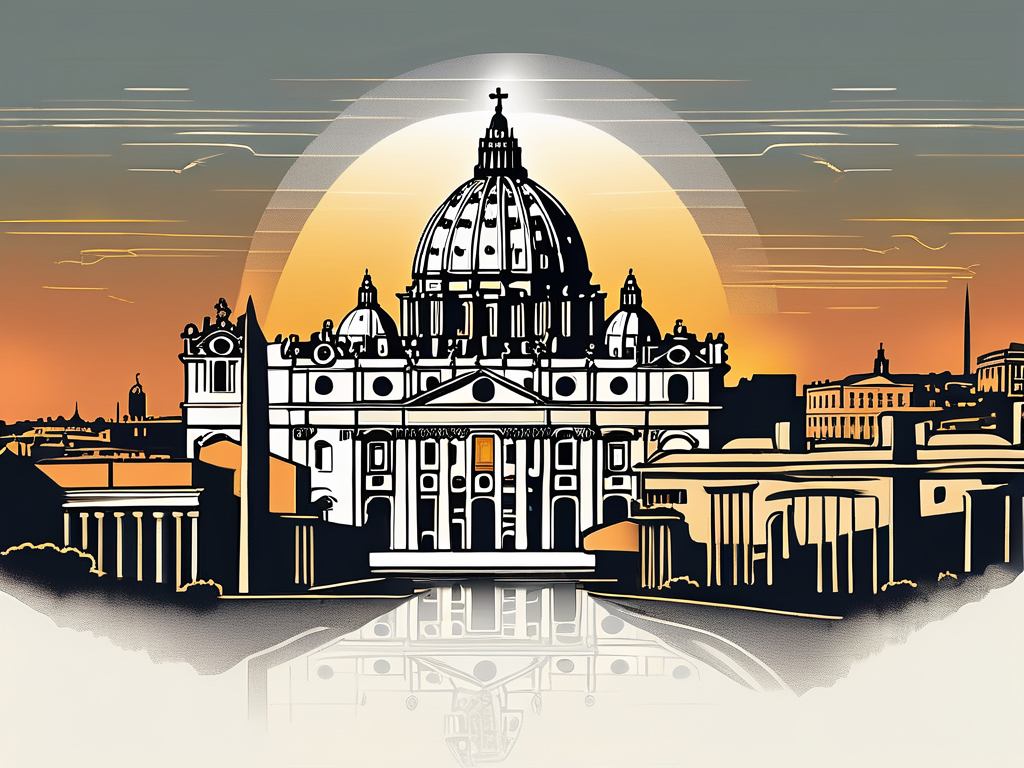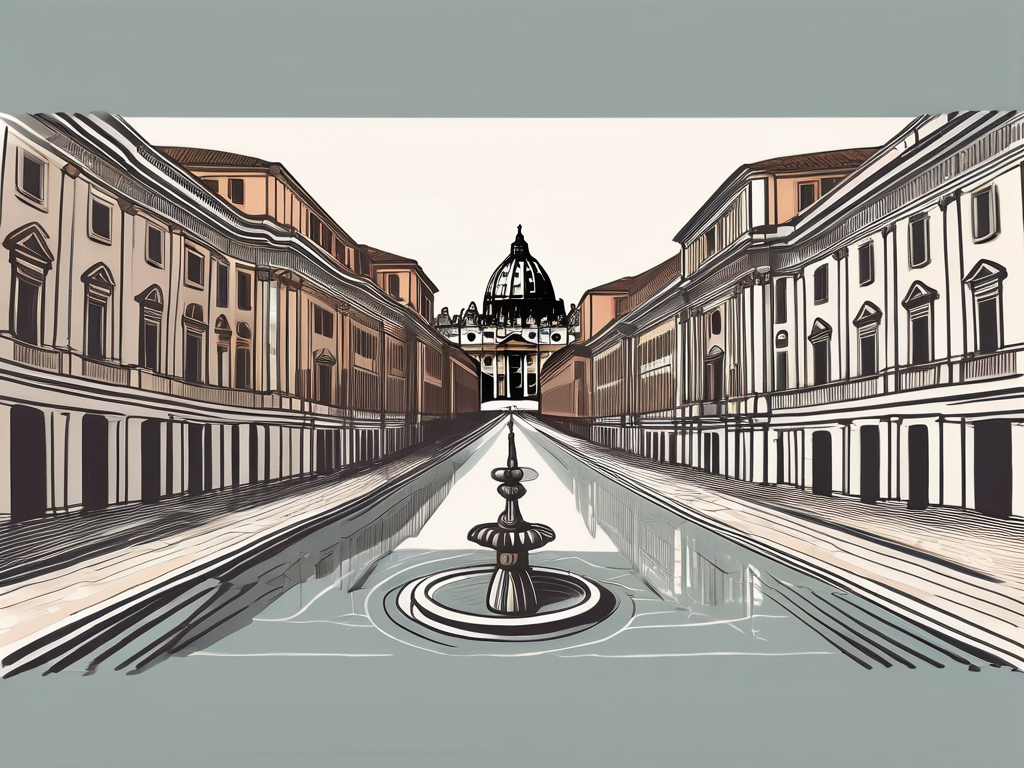In the long and complex history of the papacy, there are certain figures who leave an indelible mark upon the institution. Pope Nicholas I, who served as the head of the Catholic Church from 858 to 867, is one such figure. His papacy was marked by significant theological contributions, political influence, legal reforms, and a lasting legacy that continues to shape the modern Church.
Early Life and Ascension to Papacy
Nicholas, born in Rome in the late 8th century, hailed from a noble Roman family. His early life and education were marked by a deep devotion to the Church, and it was no surprise that he eventually entered the clergy. In 858, following the death of Pope Benedict III, Nicholas ascended to the papal throne, taking on the name Nicholas I.
Childhood and Education of Nicholas I
As a child, Nicholas received a thorough religious education, studying under the guidance of knowledgeable theologians. His days were filled with the teachings of scripture, the study of Church history, and the exploration of theological concepts. Nicholas showed great promise from an early age, displaying a remarkable ability to grasp complex theological ideas and engage in philosophical debates.
His education was not limited to the confines of the classroom. Nicholas often sought solace in the grandeur of Rome’s churches, immersing himself in the sacred atmosphere and finding inspiration in the art and architecture that surrounded him. These experiences further deepened his connection to the Church and fueled his desire to serve.
Path to the Papacy
Before assuming the papacy, Nicholas embarked on a remarkable journey within the Church hierarchy. He began his ascent as an archdeacon, diligently carrying out his duties and gaining a reputation for his unwavering commitment to justice and righteousness. His exceptional organizational skills and ability to navigate complex ecclesiastical matters quickly caught the attention of his superiors.
Recognizing his immense potential, Pope Benedict III appointed Nicholas as his trusted advisor, valuing his wisdom and insight. In this role, Nicholas played a pivotal role in shaping the policies and decisions of the Church, earning the respect and admiration of his peers.
Throughout his career, Nicholas remained steadfast in his pursuit of truth and justice. His unwavering dedication to the Church’s teachings and his tireless efforts to protect the rights of the faithful garnered widespread acclaim. It was this reputation for fairness and wisdom that ultimately paved the way for his election as Pope Nicholas I.
As Pope, Nicholas I would go on to leave an indelible mark on the Church and the world. His papacy was marked by a steadfast commitment to upholding the authority of the Church, defending its doctrines, and promoting unity among the faithful. His influence extended far beyond the walls of the Vatican, as he engaged in diplomatic efforts and played a crucial role in shaping the political landscape of his time.
Throughout his life, Nicholas I remained a beacon of hope and inspiration for the faithful. His unwavering faith, intellectual prowess, and dedication to the Church continue to serve as a testament to the power of conviction and the impact one individual can have on the world.
Theological Contributions and Controversies
Nicholas I’s papacy was characterized by his firm stance on theological matters. One of the most notable controversies of his time was the issue of iconoclasm, the rejection or destruction of religious images. Nicholas vehemently defended the use of icons, arguing that they were essential in conveying the spiritual teachings of the Church to illiterate believers.
During Nicholas I’s papacy, the debate surrounding iconoclasm reached its peak. The iconoclasts, who believed that the veneration of religious images was idolatrous, clashed with those who defended the use of icons. Nicholas, as the leader of the Catholic Church, took a strong position against the iconoclasts, recognizing the importance of visual representations in religious worship.
His stance on iconoclasm was not merely a matter of personal preference, but rather a deeply rooted theological conviction. Nicholas firmly believed that icons served as windows to the divine, allowing believers to connect with the spiritual realm. He argued that these sacred images were not objects of worship in themselves, but rather tools that facilitated a deeper understanding of the teachings of the Church.
Stance on Iconoclasm
Nicholas vigorously opposed the iconoclasts, who sought to abolish the veneration of religious images. He viewed their actions as a threat to the faithful’s ability to connect with the divine. Through his writings and teachings, Nicholas asserted that icons played a vital role in the worship and spiritual development of Christians.
Furthermore, Nicholas emphasized the educational value of icons. In an era where literacy rates were low, visual representations provided a means of teaching and reinforcing religious doctrines. Icons became a powerful tool for transmitting the stories of saints, biblical narratives, and theological concepts to the masses. Nicholas saw them as a bridge between the illiterate believers and the profound spiritual truths of the Church.
As the controversy raged on, Nicholas faced significant opposition from within the Church. Some clergy and theologians questioned the legitimacy of icon veneration, arguing that it bordered on idolatry. However, Nicholas remained resolute, defending the use of icons as an integral part of Christian worship and spirituality.
Disputes with the Eastern Church
Nicholas’s papacy was also marked by heated disputes with the Eastern Church, particularly the Byzantine Empire. These tensions stemmed from differences in theological interpretation and political power struggles between the papacy and the Byzantine emperors. Despite the challenges, Nicholas stood firm in defending the supremacy of the papal authority and the teachings of the Church.
The theological disputes between the Western and Eastern Churches had been brewing for centuries, with issues such as the filioque controversy and the authority of the Pope at the center of the conflict. Nicholas, as the Pope, found himself at the forefront of these disputes, striving to maintain the unity of the Church while upholding the teachings and traditions of the Roman See.
The Byzantine emperors, who sought to exert control over the Church and assert their authority, often clashed with Nicholas. These power struggles added fuel to the theological disagreements, further complicating the relationship between the papacy and the Eastern Church. Despite the political pressures, Nicholas remained steadfast in his defense of the papal authority, refusing to compromise on matters of doctrine and ecclesiastical governance.
Nicholas’s papacy left a lasting impact on the Church, both in terms of theological development and the preservation of its traditions. His unwavering stance on iconoclasm and his efforts to maintain the authority of the papacy in the face of Eastern opposition solidified his place in history as a defender of the faith.
Political Influence and Diplomacy
Aside from his theological contributions, Nicholas I was a skilled diplomat and exerted considerable political influence during his papacy.
Relations with the Carolingian Empire
Nicholas maintained close ties with the Carolingian Empire, which encompassed much of Western Europe at the time. He developed a strong rapport with the Frankish Emperor Louis II, forging an alliance that would prove advantageous to both the Church and the empire. This alliance allowed Nicholas to exert influence over political affairs and support the spread of Christianity throughout the Carolingian territories.
Interactions with the Byzantine Empire
While Nicholas’s relationship with the Byzantine Empire was marked by conflict, he also engaged in diplomatic efforts with the eastern rulers. These interactions were complex, as they often involved both theological and political matters. Nicholas sought to assert the authority of the papacy in the face of Byzantine influence, maintaining a delicate balance between cooperation and confrontation.
Legal Reforms and Canon Law
Recognizing the need for a standardized legal structure within the Church, Nicholas I made significant contributions to the development of canon law and instituted legal reforms during his papacy.
Decretals and their Impact
Nicholas was instrumental in compiling and organizing a collection of papal letters known as the decretals. These letters addressed various legal and administrative matters within the Church, providing guidance for future generations of Church leaders. The decretals had a profound impact on the development of canon law and established the papacy as a central authority within the Church hierarchy.
Influence on the Church’s Legal Structure
Nicholas I’s legal reforms extended beyond the compilation of decretals. He implemented measures to bring order and consistency to ecclesiastical affairs, streamlining the Church’s legal structure and strengthening its internal governance. His efforts laid the foundation for the modern canon law system.
Nicholas I’s Legacy and Impact
Pope Nicholas I’s papacy left a lasting legacy that continues to shape the Catholic Church to this day.
Influence on Subsequent Popes
Nicholas’s steadfast defense of papal supremacy and his strong leadership set a precedent for future popes. His unwavering commitment to upholding Church doctrine and his efforts to consolidate papal authority left an indelible mark on the papacy, influencing the actions and decisions of countless successors.
Modern Interpretations of His Papacy
While Nicholas I’s papacy occurred over a millennium ago, his contributions continue to be studied and analyzed by theologians, historians, and scholars. The enduring relevance of his theological stance on iconoclasm, his political influence, and his legal reforms make his papacy a subject of ongoing exploration and interpretation.
In conclusion, Pope Nicholas I’s historical significance cannot be overstated. From his early life and ascension to the papacy, to his theological contributions, political influence, and legal reforms, his papacy remains a cornerstone of Catholic history. Nicholas I’s legacy serves as a testament to the enduring power and influence of the papacy, shaping the course of the Church and leaving a lasting impact that reverberates through the ages.
